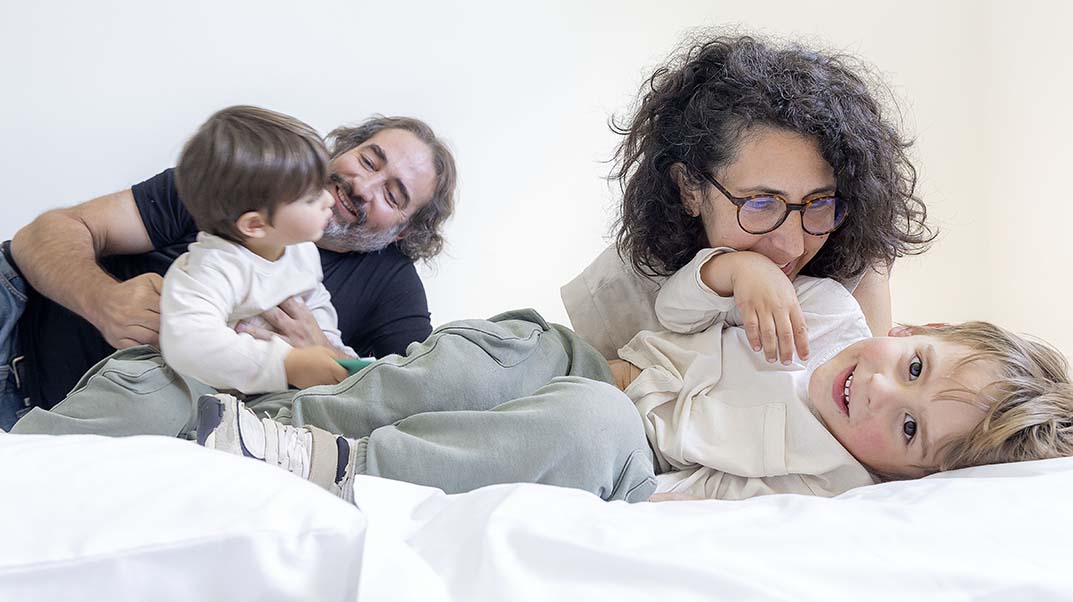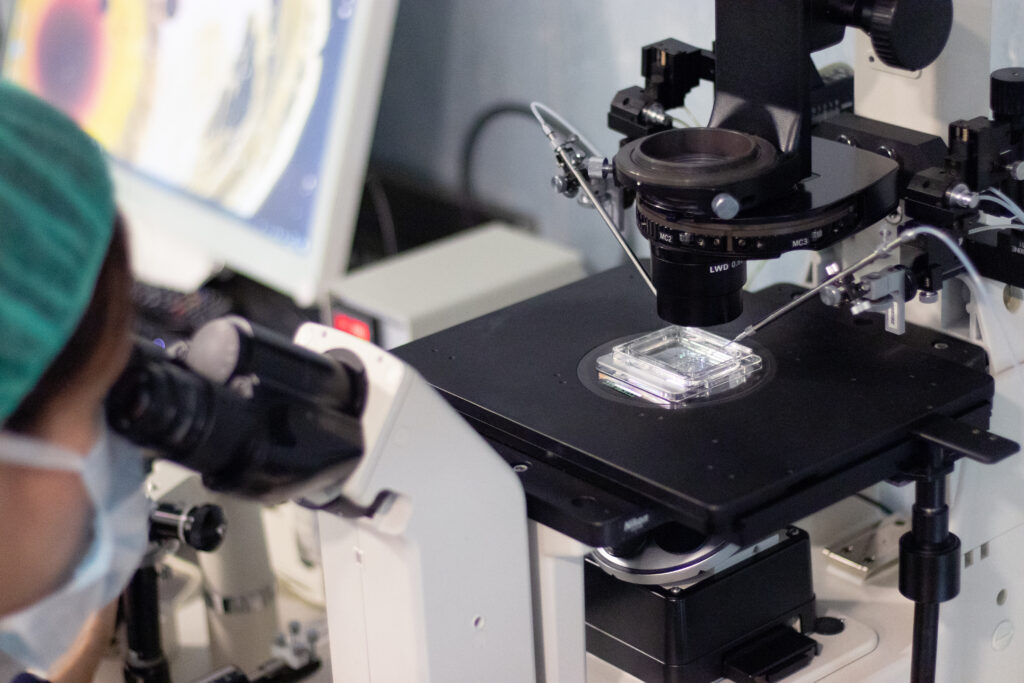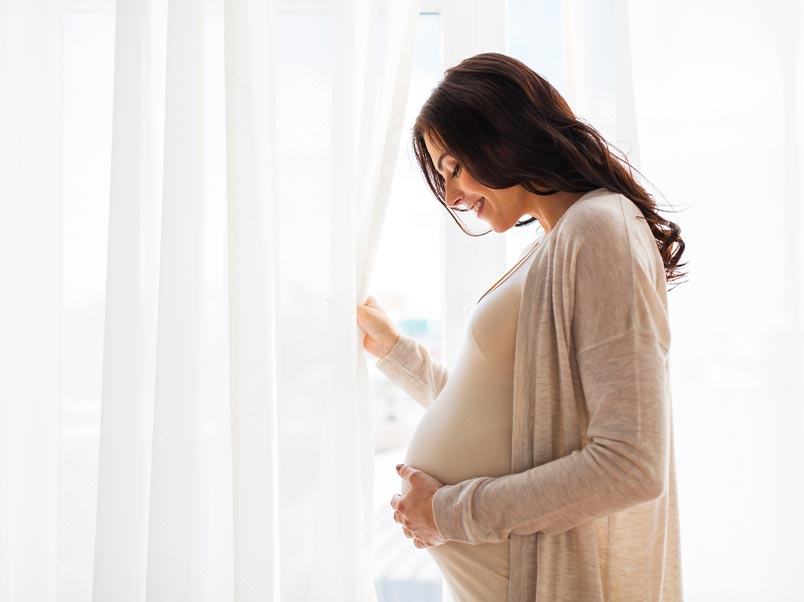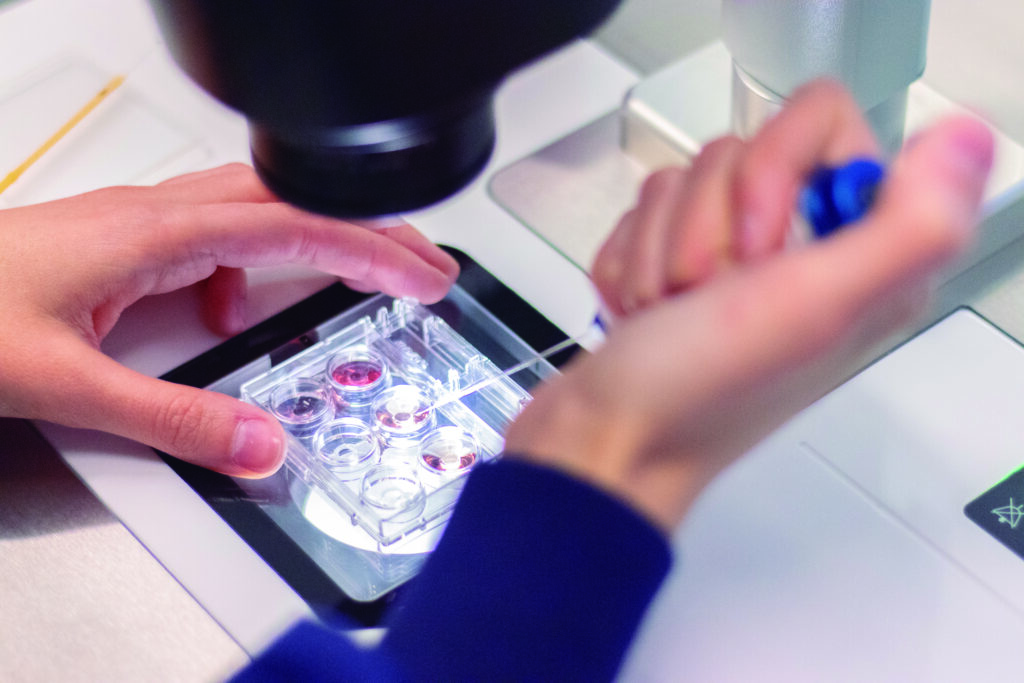blog tambre
Options for motherhood in your 40s and beyond

Table of contents
It is a fact. More and more women are aiming to become mothers in their 40s, or even later. According to INE data, the number of women in our country who have their first child after the age of 40 has doubled in the last 20 years. Social, cultural and economic changes are behind this decision. Sometimes, delaying motherhood is motivated by the need to have a good job and economic stability. Other times, it is because the right partner is slow to arrive or does not arrive at all. Or it may also happen that the woman wants to become a mother again at 40 with her new partner.
Whatever your reason for wanting to become a mother at 40 or older, it is important to know what your real reproductive options are, taking into account the advantages, risks and assisted reproduction techniques that can undoubtedly help you achieve your dream of becoming a mother at an older age.
The best biological age to become a mother
From a biological point of view, a woman’s fertile years begin in adolescence approximately one year after having regular periods. This optimal stage of fertility is maintained until approximately 27 years of age, at which time it begins to decline gradually. It is after the age of 35 when the ovarian reserve decreases significantly and problems in achieving pregnancy may begin. When a woman reaches the age of 40, the chances of a natural pregnancy are reduced to 5% and, after the age of 45, the chances of achieving a pregnancy with a woman’s own eggs are really minimal. But in addition to reduced fertility, the risk of miscarriage and genetic abnormalities increases.
Fertility preservation
For those women who wish to postpone childbearing (out of their own desire or for medical needs), fertility preservation by freezing eggs at a fertile stage is a very suitable option. This technique allows women to decide when is the best time to start a family, using their frozen eggs for in vitro fertilisation (IVF) treatments in the future, even when they are over 40 years old. At the Tambre Clinic, we offer the most advanced techniques for oocyte cryopreservation, ensuring the best possible quality for future fertility treatments.
Reproductive options after the age of 40
Due to the natural aging of the ovaries, a woman 40 years of age or older is most likely to have a low ovarian reserve. This means that the number of eggs available to achieve pregnancy is decreasing. But, to make matters worse, the quantity of eggs is reduced, and so is their quality. This is why, after this age, genetic mutations and aneuploidies (such as Down syndrome) multiply, which can lead to miscarriage or the birth of a baby with health problems.
In order to avoid all these problems and to be able to have a healthy child at the age of 40, nowadays we have different assisted reproduction techniques:
IVF with PGD
The combination of In Vitro Fertilisation (IVF) with Preimplantation Genetic Diagnosis (PGD or PGT) is the most highly recommended option for women over 40 who wish to become mothers. Through ovarian stimulation, we are able to increase the chances of pregnancy and, thanks to PGD, which is performed before the embryo is transferred to the uterus, we can select genetically healthy embryos. This improves implantation rates, decreases the risk of miscarriage, and offers a better chance of delivering a healthy baby.
Ovodonation
If the woman’s ovarian reserve is already very low and she cannot obtain enough quality eggs for IVF, one of the options is to resort to oocyte donation.
IVF with oocyte donation is the most effective assisted reproduction technique. This procedure involves the use of eggs from a young donor (18 to 35 years old), who has previously undergone various medical examinations to ensure that she is healthy.
At Tambre we have an exclusive egg donor program that allows us to find the ideal donor for each patient. For this reason, in addition to the serologies, Tambre also performs an additional study on the donor that includes: genetic analysis with karyotype, cystic fibrosis, beta-thalassemia and Fragile X, as well as a psychological evaluation.
The selection of the donor
The selection of the donor is also based on the physical characteristics (race, skin colour, eye and hair colour, complexion, size, etc.) of the woman receiving the eggs, so that the offspring will have a physical resemblance.
Finally, the chosen eggs are fertilised with sperm from the couple or from an anonymous donor. The resulting embryos are transferred into the uterus, increasing pregnancy success rates and reducing the risks of genetic abnormalities.
Genetic compatibility test
Genetic Matching is a test that helps us to know the genetic compatibility between the members of the couple, or between the egg donor and the male, or between the egg donor and the sperm donor.
This test allows us to study certain recessive genetic diseases linked to the X chromosome, and to check the probability of transmitting them to the embryo.
If in the test we discover that both parents have the same genetic mutation, and that it is possible that the baby will be born with a disease, we can perform a preimplantation genetic test of the embryos in order to transfer only the one that has inherited a single copy, or better yet none, of the defective gene. Another option would be to use a compatible donor (egg or sperm).
Embryo adoption
Another option to become a mother at 40 is to choose embryo adoption. This assisted reproduction procedure is faster and simpler than the rest. It consists of transferring an embryo to the woman. This embryo is donated by another woman or couple that has previously undergone IVF, and no longer wishes to have more children.
For the selection of embryo donors at Tambre we also follow very rigorous criteria to ensure that the donors are free of diseases and that they are compatible with the blood group and Rh of the recipient woman.
Advantages and risks of becoming a mother after age 40
Being a mother in your 40s has several advantages. Women at this stage tend to have greater maturity and emotional stability, as well as a better financial and work situation. Pregnancy is generally highly desirable, which reduces the incidence of postpartum depression.
However, pregnancy at this age carries certain risks that must be considered:
- Increased probability of miscarriage (greater than 30%)
- Risk of ectopic pregnancy.
- Hypertension and gestational diabetes.
- Preeclampsia and thromboembolism.
- Thyroid problems.
- Preterm delivery and higher cesarean section rate.
Because of these risks, pregnancies in women over 40 years of age are considered high risk and require more frequent gynaecological controls.
Being a mother at 40 is possible
Aunque las posibilidades de un embarazo natural con más de 40 años son reducidas, hoy en día disponemos de diferentes técnicas de reproducción asistida que pueden ayudarte a conseguirlo; desde la fecundación in vitro con óvulos propios hasta la ovodonación o embriadopción para casos en los que la reserva ovárica está muy reducida. Estás técnicas se pueden completar con el diagnóstico genético preimplantacional, con el fin de seleccionar los embriones más sanos.
En Tambre somos especialista en Medicina Reproductiva Avanzada, lo cual nos permite dar respuesta a los casos más complejos. Estamos comprometidos con ofrecer las mejores opciones de reproducción asistida y cuidados personalizados a todas nuestras pacientes, independientemente de la edad. Aunque existen desafíos y riesgos, la maternidad a esta edad puede ser una experiencia enriquecedora y gratificante con la preparación y el apoyo adecuados. Si estás considerando la maternidad pasados los 40 años, ten en cuenta que cada ciclo y cada segundo que pasa es importante. Solicita tu primera consulta para resolver tus dudas y conocer cuáles son tus opciones reales para ser madre a los 40.
Although the chances of a natural pregnancy over the age of 40 are reduced, nowadays we do have different assisted reproduction techniques that can help you achieve it; from in vitro fertilisation with your own eggs to ovodonation or embryadoption for cases in which the ovarian reserve is greatly reduced. These techniques can be completed with preimplantation genetic diagnosis, in order to determine which embryos are the healthiest.
At Tambre we are specialists in Advanced Reproductive Medicine, which allows us to respond to the most complex cases. We are committed to offering the best assisted reproduction options and personalised care to all of our patients, regardless of age. We speak your language, so if you come from outside Spain you will be assisted in your mother tongue as we have a team that speaks English, French, German, Italian and Dutch. Although there are challenges and risks, motherhood at this age can be an enriching and rewarding experience with the right preparation and support. If you are considering motherhood past the age of 40, keep in mind that every cycle and every second that passes is important.
Call us and ask now for your first consultation to solve all your doubts and to know what are your real options to become a mother at 40.




